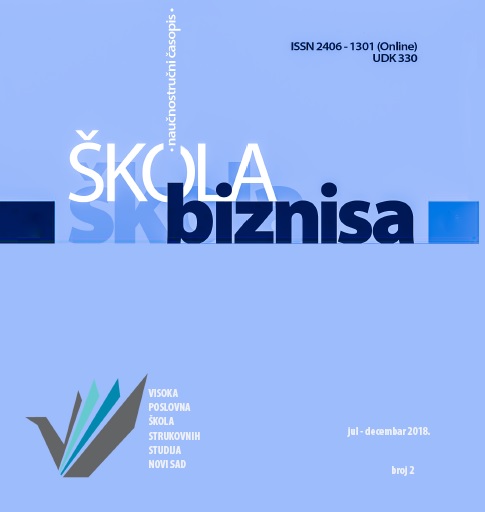IMPACT OF MOTIVES ON OUTCOMES OF THE TRAVEL – SLOW TOURISM CONCEPT
Abstract
The concept of Slow tourism is relatively new and involves people who travel to destinations „more slowly“, stay longer, engage with local transport options and local cuisine and take time to explore local history and culture. Encouraging consumers to take part in this special form of tourism has a range of benefits for destination and local community and for the consumers themselves. In the context of tourism, motivation is related to a set of needs that cause a person to travel. In this way, people travel because they are „pushed“ or „pulled“ by some forces. This paper shows the results of research that explains the impact of the motives on the outcome of the slow travel. Motives were divided into two groups: 1) push motives (relaxation, self-reflection, escape and discovery) and 2) pull motives (novelty seeking and engaging). The results showed that push motives have more significant impact on the outcomes of travel (satisfaction and future revisit intention). The survey was conducted at the end of 2017. year. The sample included 320 respondents from the teritory of the Republic of Serbia who had visited some of the destinations in Vojvodina labeled as „slow place“ in the past two years (Palić, a grange in Vojvodina, Fruška gora).
- Authors retain copyright and grant the journal right of first publication with the work simultaneously licensed under a Creative Commons Attribution License that allows others to share the work with an acknowledgement of the work's authorship and initial publication in this journal.
- Authors are able to enter into separate, additional contractual arrangements for the non-exclusive distribution of the journal's published version of the work (e.g., post it to an institutional repository or publish it in a book), with an acknowledgement of its initial publication in this journal.
- Authors are permitted and encouraged to post their work online (e.g., in institutional repositories or on their website) prior to and during the submission process, as it can lead to productive exchanges, as well as earlier and greater citation of published work (See The Effect of Open Access).

